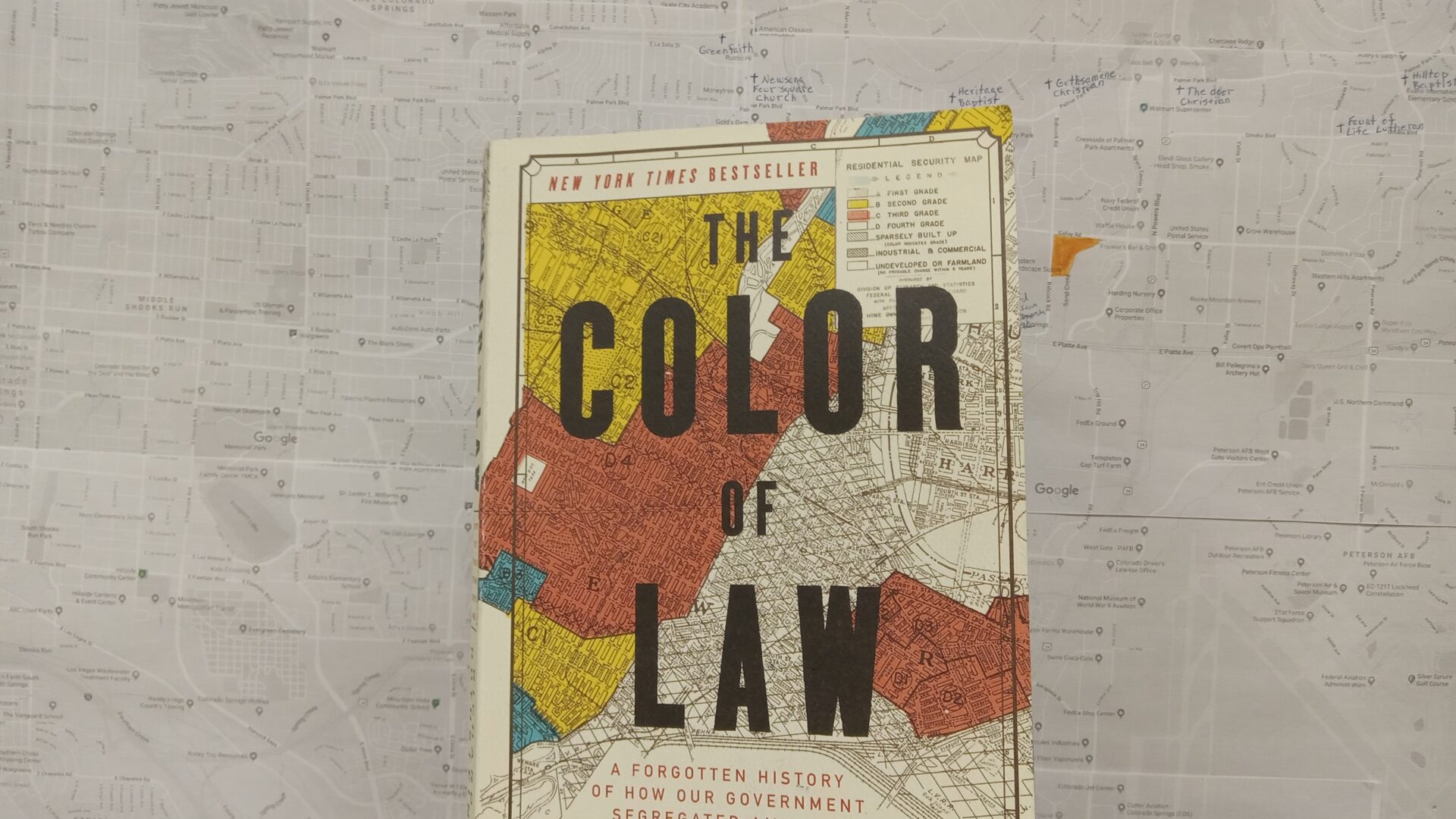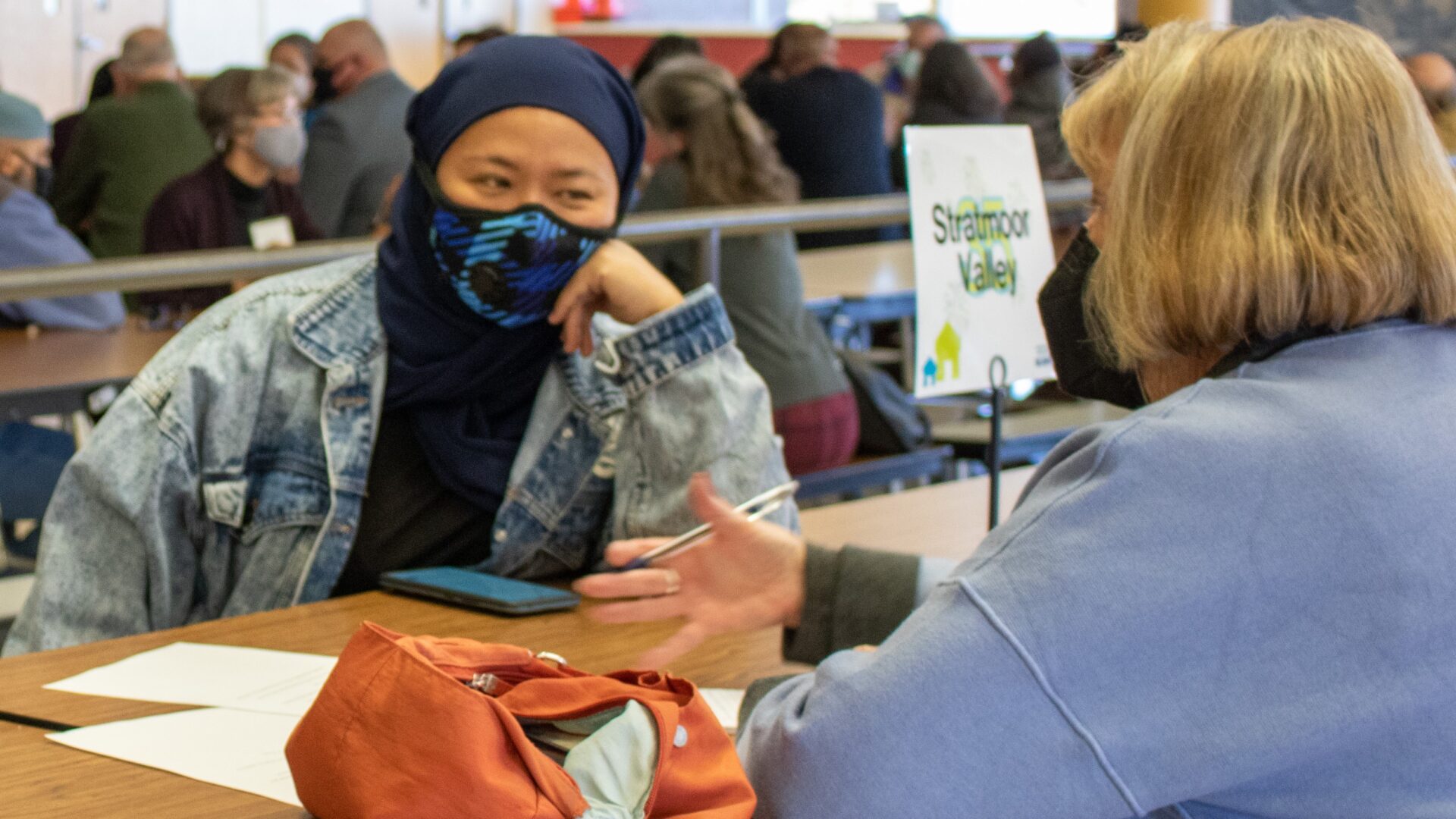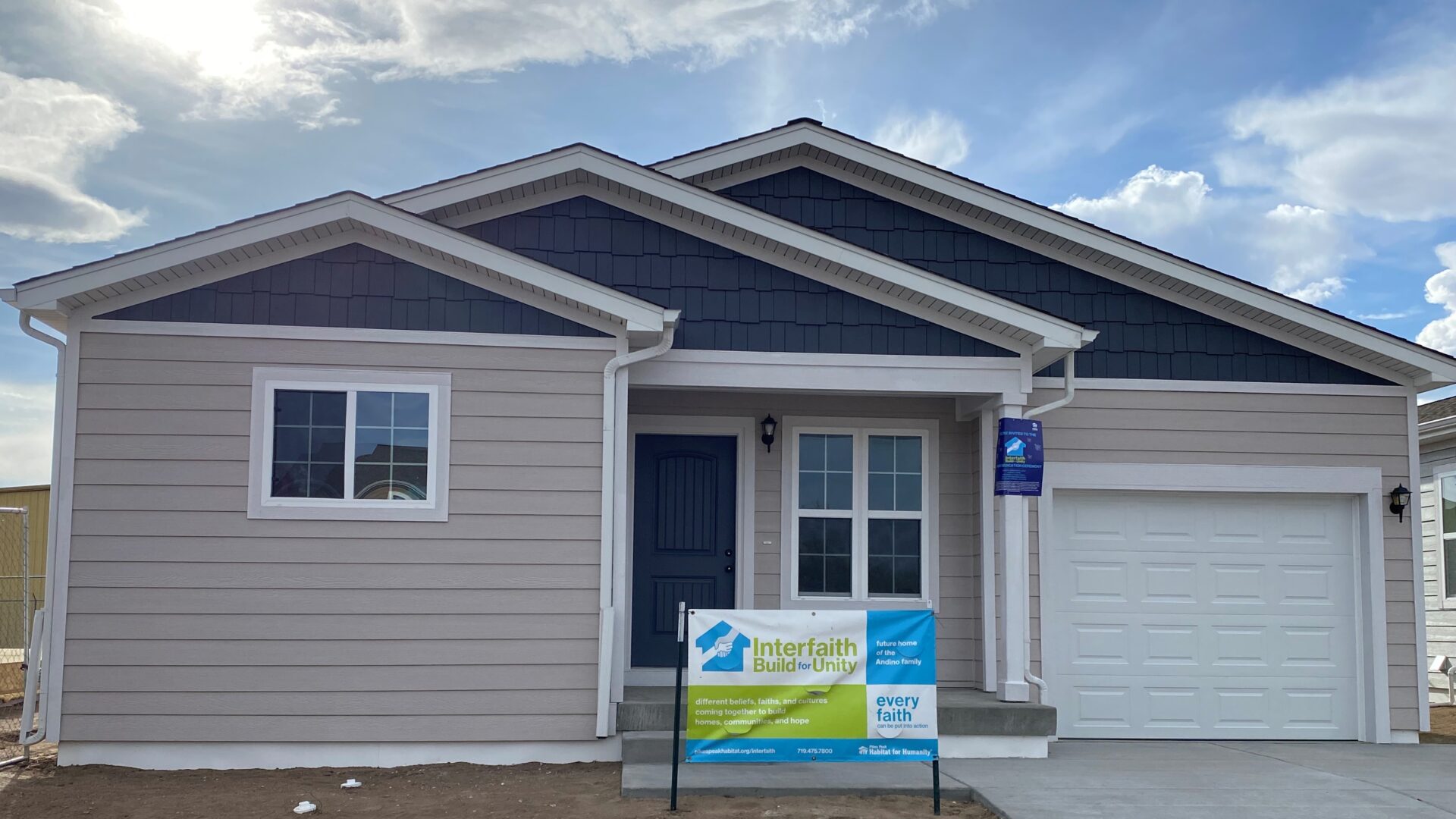
Richard Rothstein's book The Color of Law: A Forgotten History of How Our Government Segregated America looks at how U.S. government policies and programs enforced and even imposed racial segregation. As part of our Building the Beloved Community initiative, Pikes Peak Habitat for Humanity is encouraging thoughtful reading and discussion of this work. The questions below are designed to help you engage with the book, either individually or as part of a group.
Getting Started

- Why does the topic of racial segregation in American housing matter to you?
- What presuppositions and beliefs do you hold about housing segregation in the United States, both historically and now?
- What blinders might you have as a result of your own experiences?
- What would you like to learn from other people whose experiences have been different than yours?
- If you identify as part of a faith community or tradition, what is that group's attitude toward racial segregation in housing? What, if any, steps is that group taking to address housing inequality?
Questions for Reflection and Discussion
- (How) did racially discriminatory VA and/or FHA lending practices after World War II impact your grandparents and great-grandparents? Your parents? You?
- What opportunities have you had or not had in the United States as a result of how race affected your family’s housing possibilities?
- In Chapter 1, Rothstein follows Frank Stevenson's story to illustrate government-enforced racial segregation in the San Francisco Bay Area from World War II to the present. During this same time period, what was your own family’s experience of housing? How did they benefit or struggle because of racially motivated government policies regarding home buying, renting, and education?

- "Local attitudes" often provided a rationale for discriminatory policies. What “local attitudes” have you observed or experienced in El Paso County regarding racial segregation?
- Rothstein notes that during the mid-20th century, the American government promoted homeownership as a way of opposing Communism and promoting capitalism. Yet many of the governmental policies he examines directly hindered free-market practices. How has rhetoric about economic systems historically been manipulated to support segregation? How does it continue to impact homeownership today? What implicit or explicit messages about race are embedded in such rhetoric?
- Of the suggestions Rothstein offers for addressing the systematic inequality caused by racial housing practices, which do you think would be most effective? What would be required to enact any of these solutions?
Questions to Research

- In the footnote on p. 14, Rothstein says, “If you inquire into the history of the metropolitan area in which you live, you will probably find ample evidence of how the federal, state, and local governments unconstitutionally used housing policy to create or reinforce segregation in ways that still survive.” What does this look like in El Paso County?
- How have single-family zoning ordinances impacted housing opportunities and affordability in El Paso County?
- If you are able, drive through a local area with a heavy industrial presence. What do you notice about the nearby residences?
- What examples can you find of local statutes and practices in El Paso County (zoning, school placement, etc.) promoting segregation?
- What role has law enforcement played in promoting or challenging segregation in El Paso County?
Final Thoughts
- What feelings -- anger, shame, grief, horror, despair, contrition, denial, hope, something else -- did this book bring up for you? How can you process those responses in healthy, productive ways?
- How have your perspectives changed as a result of reading this book?
- In Let Us Dream: The Path to a Better Future, Pope Francis says, "The abstract paralyzes, but focusing on the concrete opens up possible paths." In the face of Rothstein's often overwhelming evidence, how can you focus on the concrete? What actions will you take to address racial inequalities in housing?
- If you are part of a faith community, how might that organization or group become involved? What steps can you take to engage other community members in this issue?

